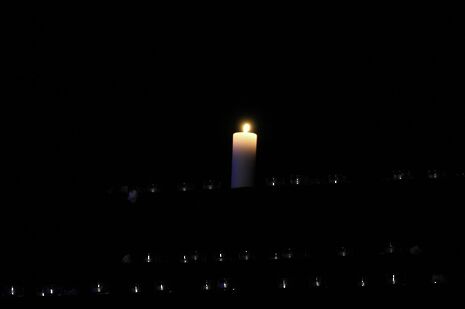The Holocaust: Remembering is for life
Memorials for crimes of this magnitude can’t be confined to a day, says Noa Gendler

The motto of today is ‘never forget’, but I think we may be in danger of forgetting.
I don’t mean in the literal ‘we don’t know what the Holocaust was’ sense. In the last week the number of TV documentaries, news articles, Facebook posts and twitter hashtags has convinced me that this year, at least, a significant proportion of the population knows that today, 27th January, is Holocaust Memorial Day. Having attended a Council-run memorial event at the Corn Exchange on Sunday, I’ve also been convinced that this isn’t just for Jews. The secular world recognises the many genocidal disgraces of the twentieth century.
But I worry that in a couple of days, once the BBC switches away from the necessary political correctness, our focus will return to that kid whose parents were banned from naming her Nutella and that massive snowstorm in New York. The things we thought about today will be lost in a whirlwind of lecture notes and Tab pages tomorrow, and with them go the facts we learnt and the horror we feel about the systematic murder of eleven million individual people. That would be wrong, not because it’s our duty to think about twentieth century genocides every single moment, but because we shouldn’t be thinking about it just because we’re reminded by some photos of survivors on BuzzFeed. And then the minute they show you pictures of cats in teacups, you’re thinking about that instead.
I don’t like how social responsibility is so transient. I don’t like how the Internet feeds us pile upon pile of trite nonsense every day to the point that the average human attention span is literally shorter than that of goldfish: eight seconds (compared to twelve in 2000). Rubbish takes over and things which are important are reduced to a few clicks of a mouse and a Wikipedia page.
Memorials for crimes of this magnitude can’t be confined to a day, nor should we feel our discomfort eased just by sitting through a service or sending a tweet. Our responsibility to remember the Holocaust doesn’t end once we’ve lit our candles, or at midnight, or when we wake up tomorrow. We have to keep memories of events on this scale somewhere in our minds for much, much longer than that.
It is crucial that we remember the genocides of Nazi Germany, Cambodia, Rwanda, Bosnia and Darfur so that we can recognise patterns of intolerance and attempt to prevent similar atrocities in the future. Please don’t stop bearing this in mind just because tomorrow isn’t Holocaust Memorial Day.
 News / CUP announces funding scheme for under-represented academics19 December 2025
News / CUP announces funding scheme for under-represented academics19 December 2025 News / SU reluctantly registers controversial women’s soc18 December 2025
News / SU reluctantly registers controversial women’s soc18 December 2025 News / Cambridge welcomes UK rejoining the Erasmus scheme20 December 2025
News / Cambridge welcomes UK rejoining the Erasmus scheme20 December 2025 Features / Should I stay or should I go? Cambridge students and alumni reflect on how their memories stay with them15 December 2025
Features / Should I stay or should I go? Cambridge students and alumni reflect on how their memories stay with them15 December 2025 Film & TV / Timothée Chalamet and the era-fication of film marketing21 December 2025
Film & TV / Timothée Chalamet and the era-fication of film marketing21 December 2025










